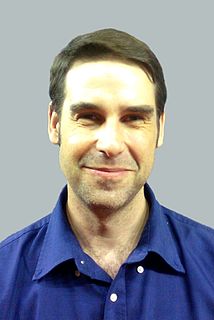A Quote by William Inge
The wise man is he who knows the relative value of things.
Related Quotes
There are four types of men in this world: 1. The man who knows, and knows that he knows; he is wise, so consult him. 2. The man who knows, but doesn't know that he knows; help him not forget what he knows. 3. The man who knows not, and knows that he knows not; teach him. 4. Finally, there is the man who knows not but pretends that he knows; he is a fool, so avoid him.
God cannot be referred to as 'good,' 'better,' or 'best' because He is above all things. If a man says that God is wise, the man is lying because anything that is wise can become wiser. Anything that a man might say about God is incorrect... The best a man can do is to remain silent...The true master knows that if he had a God he could understand, he would never hold Him to be God.
Modern man has no real "value" for the ocean. All he has is the most crass form of egoist, pragmatic value for it. He treats it as a "thing" in the worst possible sense, to exploit it for the "good" of man. The man who believes things are there only by chance cannot give things a real value. But for the Christian the value of a thing is not in itself autonomously, but because God made it.






































